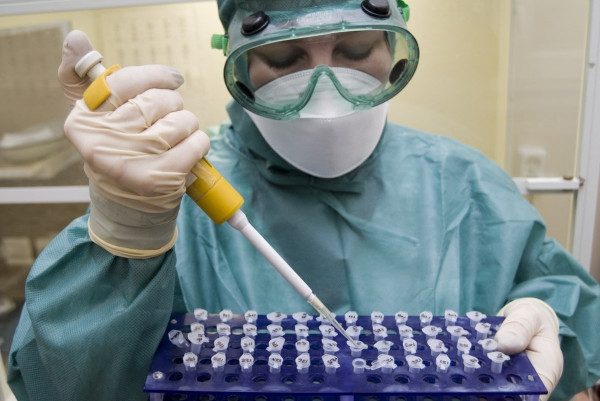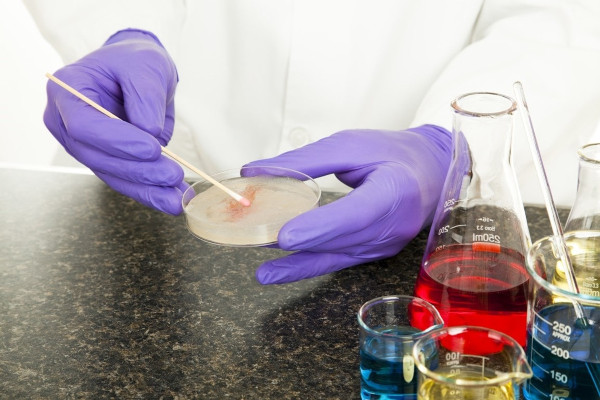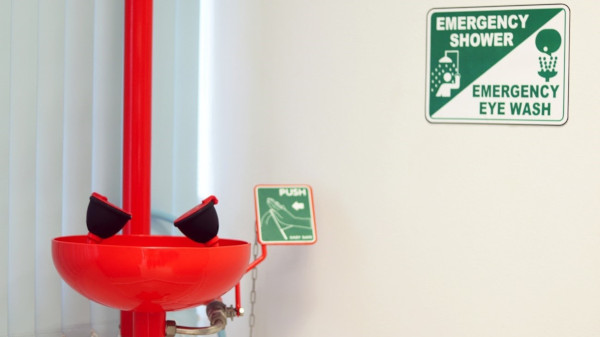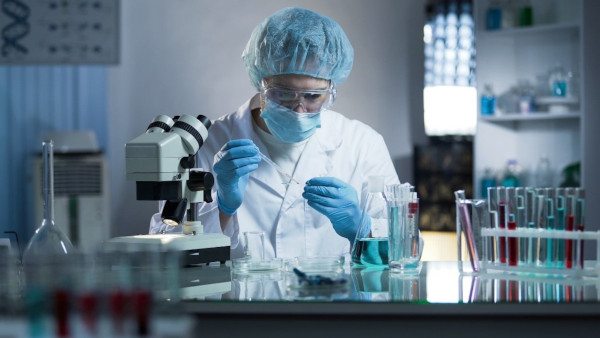A career as a safety officer can be extremely rewarding as you make work environments safer for employees across a diverse range of industries. One of the interesting industries a safety officer can focus their career on is the scientific industry, specifically working as a laboratory safety officer in a scientific laboratory. In this quick guide, we briefly outline the responsibilities of a laboratory safety offer that all work towards ensuring safety in the laboratory. Gain the skills you need to become a laboratory scientist with the training from EMCARE’s safety officer course.
Responsibilities of a Laboratory Safety Officer:
While health and safety are essential in all workplaces, there is a greater importance on maintaining a hazard-free environment in a laboratory. You can find everything from contagious diseases to harsh chemicals to expensive specialist equipment in a laboratory, all of which only increase the importance of the role a laboratory safety officer performs. We have highlighted 6 of the responsibilities of a laboratory safety officer to ensure safety in the laboratory.
1) Create and Teach Safety Protocols:
The main responsibility of the laboratory safety officer is to create a safe laboratory for all scientists that are compliant with the Occupational Safety and Health Administration (OSHA) regulations in South Africa. This means that they will design optimum safety protocols for the laboratory and teach these to all the scientists. They will also be in charge of teaching any new or visiting scientists about the safety practices in the laboratory.
One unique role that a laboratory safety officer will perform is working with the scientists to include safety protocols into the standard operating procedures (SOP) for experiments. The scientists will design an optimised SOP for each type of experiment they perform, and the laboratory safety officer will ensure that there are stipulated safety practices in the SOP.

2) Monitor Safety Practices:
The creation of safety protocols is not where it ends with the safety responsibilities of a laboratory safety officer. The laboratory safety officer must continuously monitor the practices of the scientists in the laboratory to ensure the safety protocols are being adhered to. If a scientist diverts from the stipulated safety protocols, the laboratory safety officer has the authority to administer any necessary enforcement.
3) Monitor Storage, Use, and Disposal of Hazardous Materials:
Laboratories are home to a host of chemical and biologically hazardous materials. Chemical hazardous materials can include anything from cleaning agents to solvents to compressed gases and biologically hazardous materials can include microbes, infectious viruses or bacteria, and bodily fluids or tissue. If stored, used, or disposed of incorrectly, any of these chemical or biologically hazardous materials could pose immense safety threats to the people in the laboratory and the surrounding area.
Laboratory safety officers are in charge of the storage, use, and disposal of all hazardous materials in the laboratory. They will check the storage of the hazardous materials to ensure that spillage, damage, contamination, or expiration does not occur. They will also ensure that the scientists follow all safety protocols when using hazardous materials. The disposal of all hazardous materials will be monitored and performed in a compliant manner.

4) Develop Emergency Plan:
Due to the hazardous nature of a laboratory, an emergency plan is essential. The laboratory safety officer will be tasked with creating an emergency plan, teaching the plan to the scientists, and performing routine practices of the emergency plan. In a laboratory, the safety officer should develop emergency plans for natural disasters, contamination of the premise, accidental exposure of hazardous materials to scientist/s, and emergency medical treatment.

5) Investigate Accidents and Incidents:
Like all workplaces, things can go wrong in a laboratory. When a problem arises, it is the responsibility of the laboratory safety officer to investigate and report the accident or incident. The laboratory officer will perform all necessary steps to gather accurate information on the cause of the accident or incident and then compile this information into a report. The report will be presented to necessary management and steps will be taken to reduce the risk of the accident or incident occurring again in the laboratory.
6) Check and Update Equipment and Machinery:
Laboratories consist of a mind-blowing collection of equipment and machinery, most of which is highly specialist and extremely expensive. The laboratory safety officer will be tasked with ensuring that the current equipment and machinery being used by the scientists are in safe and optimal working condition. They will also be tasked with ensuring the laboratory equipment and machinery are updated to ensure access to the latest technological advancements for high-quality scientific research to be performed in the laboratory.

EMCARE Safety Officer Course to Become a Laboratory Safety Officer:
If working as a safety officer in a laboratory filled with lab-coat-wearing scientists performing ground-breaking research with unique machines and chemicals is your ideal working environment, then you can make this dream a reality with EMCARE’s safety officer course. Our safety officer course is high-quality and affordable, allowing you to obtain the highest standard of safety officer training for your laboratory safety officer position.
Like all safety officers, laboratory safety officers are responsible for the health and safety of everyone in the laboratory workplace. To adequately perform the important safety responsibilities of a laboratory safety officer, you need expert safety officer course training. EMCARE’s safety officer course is comprehensive as it covers every practical skill you will need to be a professional safety officer. We have listed below the essential skills covered in our safety officer course.
- First Aid Level 1, 2 & 3 Combined
- Basic Fire Fighting
- Legal Liability
- SHE Representative
- RISK Assessment
- Accident/Incident Investigations
- Emergency Evacuation
- Hazardous Material Handling
- OHS Supervisor Certificate
- Safety Officer Certificate
If you have already done accredited training for all of the modules except for the safety officer certificate, that is not a problem with our safety officer course. We offer an online safety officer course certificate that can be completed in one day for those who can provide certificates for the above health and safety training. Our safety officer course is designed to enable you to achieve your goal safety officer position quickly so that you can start offering expert safety to your chosen workplace.
Equip yourself with the certification to become a professional laboratory safety officer with EMCARE’s safety officer course.















